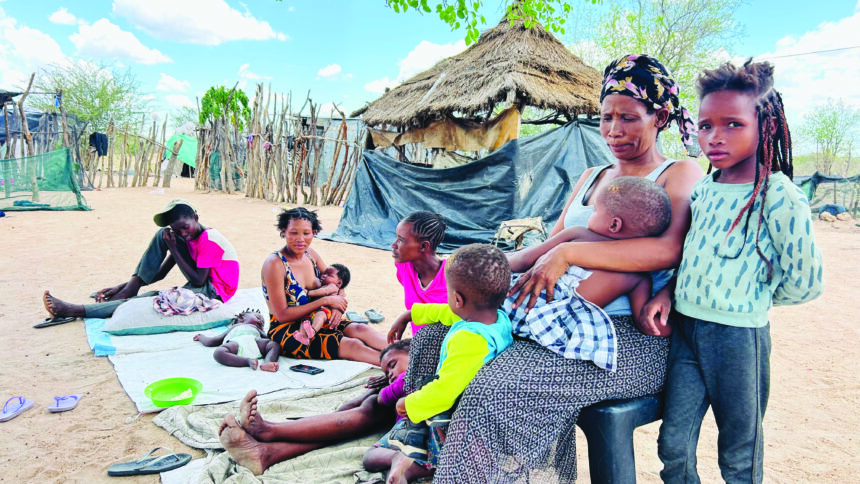BRAVO – Jafet Tame Langman, the headman of Bravo village in Kavango West, says his community yearns for the development promised to them by politicians over the years.
He said with a new president set to take the country’s reins on 21 March 2025 and an executive of their own, the time to deliver is now. “During campaigns, many parties came and promised us many things. The previous government promised us milk and honey, but we were always left out. They said: ‘Vote for me and my party, and I will deliver.’ ‘I will develop you’, but we are now just hopeful that this time, we will see something different,’’ he stated.
Unemployment
The headman added: “There are no jobs here, [there is] poor sanitation, and many young people just get old here doing nothing. It’s just old people that get the pension grant from the government. We have brought all our grievances to the government through different platforms for years now. Yes, there is a little bit of help.
They give us some goats, and two cattle to some people and maize meal, but most of the things are left out. The poverty is worsening in this area. There are needs to help keep children in school, but these have not been provided. Our children drop out because of our poverty,” he noted.
He said they do not have a place to print government employment forms or make copies of their documents for the young people to apply for employment when opportunities arise.
“We can’t provide our children and grandchildren with any school needs – not even transport to the nearest secondary school, which is 100 kilometres away,’’ he said.
“Yes, we do have a primary school and a non-government-sponsored early childhood development centre, but that is just a small percentage of our needs as a community. We have no clinic and sometimes, when we call for an ambulance at the Mpungu village health centre, they tell us the ambulance is out attending to other calls. We struggle a lot. Even when my wife went to give birth, we struggled for two days before the ambulance came,’’ he said.
Healthcare
He said the villagers depend on the health facility at Mpungu village.
When members of the community are sick, they wait until an ambulance is dispatched from Mpungu, the headman lamented, painting a gloomy picture of their daily lives.
“As we speak now, a woman and two minors from our community died at the Mpungu health centre. Their bodies are still in the mortuary there because the family can’t afford to bring them back to give them a decent burial. Some bodies stay uncollected from the mortuary for up to a year because of poverty. Those are some of the challenges we face in Bravo,” he said.
The headman said what makes matters worse is that the food they receive from the government is also inadequate.
“If you are not there when the truck that delivers the food comes, the food returned and you will have lost out. They insist on seeing the beneficiary before releasing the food. We don’t know to which office the plight of Bravo people should be taken so that we can be free. “Bravo is an old place, but there’s a new village in Oshikoto region that already has a clinic. Sometimes, we get help from there. We also get assistance from Tsumeb, 100km away – and Tsintsabis, 40 km away, which are in Oshikoto region, although we fall under Mpungu in Kavango West,’’ he said.
Identity Documents
Most people in Bravo do not have national identity documents, which makes it difficult to access government services and grants.
“The government promised us many projects. Some of the projects started here never materialised because they brought in people from elsewhere, who came to mess it up. They left us high and dry,’’ he said appealing for more help.
Another resident, Martha Awases, added that government departments have repeatedly visited Bravo, and made promises, which never materialised. “We are expecting improvements. We depend on food grants – and if there is a delay, people sell their land to people who are flocking from Ohangwena and Oshikoto to bring their livestock. They sell to feed their families. In the past 10 years, no development has been seen here,’’ she said.



